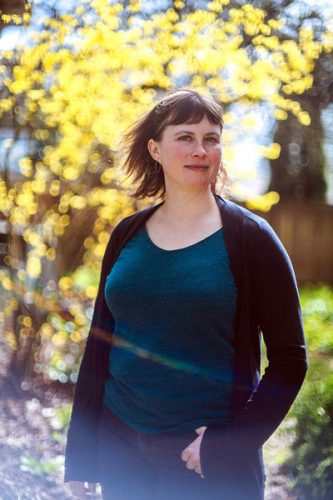
“Overall in the environmental community, women in the field are increasing, but it’s traditionally dominated by men,” Chandra LeGue says. “There have been lots of great women ecowarriors, and there have always been a few standout women in the field.”
LeGue has been with conservation group Oregon Wild for 10 years, focusing mostly on conservation of public forestlands, “and I do that through participating in the public process,” she says. According to LeGue, this involves working with federal agencies to promote a vision of how federal forests should be managed. Luckily that also involves leading public hikes out into public lands, which means she can leave Oregon Wild’s small Lincoln Street office and get out into the forests she loves.
Because 2014 is Oregon Wild’s 40th anniversary and it’s also the 50th anniversary of the Wilderness Act, LeGue will be leading more hikes than usual. That’s a welcome relief, she notes, from dealing with the controversial O&C lands legislation introduced by Rep. Peter DeFazio in the House and Sen. Ron Wyden in the Senate that would ramp up logging on large swathes of Oregon’s public lands.
“We do work a lot in collaboration,” LeGue says of Oregon Wild, “and I definitely don’t want to come across as stereotyping, because it’s not a truism for all women, but I see ourselves as relationship builders.”
Oregon Wild prides itself not only on collaboration — sometimes working with agencies in forest-thinning projects that the group says both produce timber and benefit the ecosystem — but also on taking strong stances on issues such as old-growth logging or the O&C lands. Both approaches often lead to controversy with fellow enviros, government agencies and the timber industry alike.
But “whether collaborating or taking a hard stance, good relationships are important,” LeGue says. “I think you get more respect for that stand because you have a relationship.”
She points to Wyden’s office as an example. “We’ve worked on legislation that was a compromise between environmental and timber interests and built really important relationships with his office and others involved,” she says. But at the same time, LeGue says Oregon Wild doesn’t support Wyden’s O&C forestland logging bill. “But I think we get more respect [for that position] because we built that relationship.”
LeGue’s advice to budding women environmentalists? First, “Don’t be intimidated by the guys. Be persistent in making your views known.”
Also, plan what you want to do as a conservationist: “It’s important to know where you can make the biggest difference and focus your attention there,” she says. Whether it’s “the direct action route and doing treesits or going into politics and trying to change the world that way, know the options and try exploring different roles.”
LeGue adds, “I think women’s voices can be more powerful because they are the minority.”